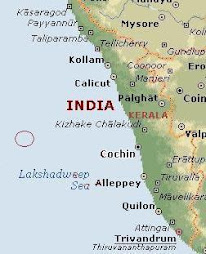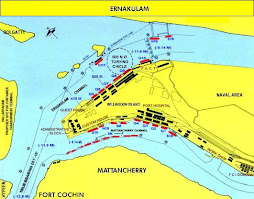Indian Supreme Court examines Japanese Carriage of Goods by Sea Act, 1992
Can the mere mentioning of the invoice in the bill of lading be taken to mean that the value of the goods as stated in the invoice has been declared in the bill of lading? The Supreme Court of India has answered in the negative in Shipping Corporation of India V. M/s Bharath Earth Movers. The Court held the invoice not to be a part of the bill of lading. According to the Court, value of the goods is required to be stated on the bill of lading so as to enable the shipping concern to calculate the quantum of freight and in the absence of any statutory provisions it cannot be held that the value stated in the invoice is impliedly incorporated into the bill of lading.
The application of Indian Carriage of Goods by Sea Act, 1925 vis-à-vis the Japanese Carriage of Goods by Sea Act, 1992 was also considered by the Supreme Court of India in the that case. The case related to damage to a part of the cargo comprising of 16 packages carried from Kobe in Japan to Madras (Chennai) in India. On the question of law governing the issue, the after examining the provision in both statutes, the Court held that Sec.2 of the Indian Act clearly demonstrate that the same applies to the carriage of goods by sea in ships carrying goods from any port in India to any other port whether in or outside India. Thus the Indian Act applies only when the carriage takes place from a port situated within India and not a port outside India. The Japanese Act, the Court held applies in a situation where the carriage of goods by a ship is either from a loading port or from a discharging port, either of which is located outside Japan. Hence in the case which was being considered the Court held that Japanese Act applies.
Though contentions based on Multimodal Transportation of Goods Act, 1993 were raised by both parties before the Court, it was held that the said Act does not apply because admittedly the mode of transport was by the sea alone and did not involve multimodal transportation as defined in Sec.2 (k) of the 1993 Act.
The case also dealt with questions regarding limitation of liability. Provisions regarding Limitation of Liability contained in Article 13 of the Japanese COGSA was compared and contrasted by the Court with provisions relating to the same in the Indian Act.
The Judgment of the High Court of Chennai was set aside inter alia holding that “the approach of the High Court is wrong” and the matter was directed to be considered afresh in the light of the observations made by the Supreme Court.
Though there is nothing new in the dictum that Indian COGSA applies only to outward cargo, the decision is important for its rulings on the question of value of the cargo stated in the bill of lading and on the Limitation of Liability aspect. The scope of the Japanese COGSA as stated in Article 1 appears interesting and the wordings thereof is strikingly different from the analogous provision in Indian COGSA.
***
Can the mere mentioning of the invoice in the bill of lading be taken to mean that the value of the goods as stated in the invoice has been declared in the bill of lading? The Supreme Court of India has answered in the negative in Shipping Corporation of India V. M/s Bharath Earth Movers. The Court held the invoice not to be a part of the bill of lading. According to the Court, value of the goods is required to be stated on the bill of lading so as to enable the shipping concern to calculate the quantum of freight and in the absence of any statutory provisions it cannot be held that the value stated in the invoice is impliedly incorporated into the bill of lading.
The application of Indian Carriage of Goods by Sea Act, 1925 vis-à-vis the Japanese Carriage of Goods by Sea Act, 1992 was also considered by the Supreme Court of India in the that case. The case related to damage to a part of the cargo comprising of 16 packages carried from Kobe in Japan to Madras (Chennai) in India. On the question of law governing the issue, the after examining the provision in both statutes, the Court held that Sec.2 of the Indian Act clearly demonstrate that the same applies to the carriage of goods by sea in ships carrying goods from any port in India to any other port whether in or outside India. Thus the Indian Act applies only when the carriage takes place from a port situated within India and not a port outside India. The Japanese Act, the Court held applies in a situation where the carriage of goods by a ship is either from a loading port or from a discharging port, either of which is located outside Japan. Hence in the case which was being considered the Court held that Japanese Act applies.
Though contentions based on Multimodal Transportation of Goods Act, 1993 were raised by both parties before the Court, it was held that the said Act does not apply because admittedly the mode of transport was by the sea alone and did not involve multimodal transportation as defined in Sec.2 (k) of the 1993 Act.
The case also dealt with questions regarding limitation of liability. Provisions regarding Limitation of Liability contained in Article 13 of the Japanese COGSA was compared and contrasted by the Court with provisions relating to the same in the Indian Act.
The Judgment of the High Court of Chennai was set aside inter alia holding that “the approach of the High Court is wrong” and the matter was directed to be considered afresh in the light of the observations made by the Supreme Court.
Though there is nothing new in the dictum that Indian COGSA applies only to outward cargo, the decision is important for its rulings on the question of value of the cargo stated in the bill of lading and on the Limitation of Liability aspect. The scope of the Japanese COGSA as stated in Article 1 appears interesting and the wordings thereof is strikingly different from the analogous provision in Indian COGSA.
***



























